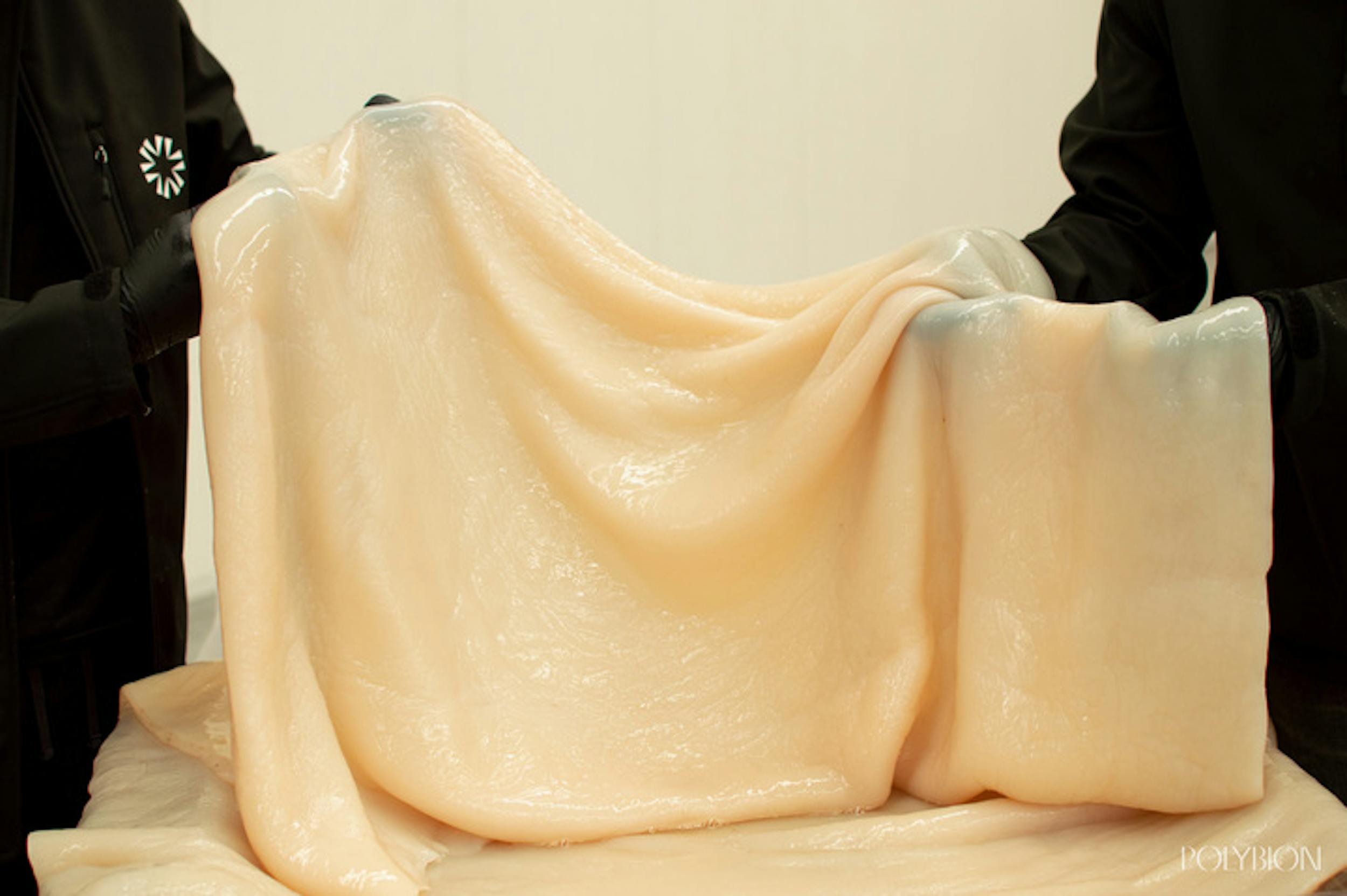Scaling and deployment, a keystone for long-term global sustainability.

- Published on
- August 4, 2022
The next-gen materials industry is betting it all in the bio revolution. Growing the future is happening, but bio innovations and sustainable solutions face a common challenge: scalability. The main challenge for a sustainability transition is to scale up sustainably successful solutions. Bio innovations and next-generation materials will only have a meaningful impact if they are available on a mass scale and affordable for everyone.
Scalability is at the core of Polybion's culture; industrializing cellular agriculture to grow our leather alternative, Celium™, has been a keystone for us since the early days.
The main challenge for a sustainability transition is to scale up sustainably successful solutions.
When scaling, volume, yield and affordability are key. Under this assumption, we developed the tools and technology to grow high-performance bio-assembled materials at scale by upcycling agro-industrial fruit waste and harnessing living organisms such as bacteria.
We proved our technology on lab scale, lab-pilot plant scale, and small industrial scale. After the expertise gathered in these three iterations, we built FOAK I: the First Of A Kind bacterial cellulose biomanufacturing facility by December 2021. This 14,000 square feet solar-powered manufacturing facility will produce 1.1 million square feet of our cell-based biotextile Celium™ annually at maximum capacity.
Most importantly, the stabilization and tanning of Celium™ requires no new infrastructure, just optimized chemistry and water usage within existing tanning facilities, bringing the possibility of redirecting the tanning industry toward sustainable practices. Furthermore, working with bacteria enables us to use existing large-scale fermentation and indoor farming equipment, minimizing scale-up risk.
After industrially optimizing our technology and running hundreds of iteration badges, we are certain our biomanufacturing process is scalable, replicable, modular, and high-yielding.
Our biomanufacturing process is scalable, replicable, modular, and high-yielding.
We believe the only way to provide meaningful economic and environmental impact is by scaling and deploying technologies to grow materials like Celium™.